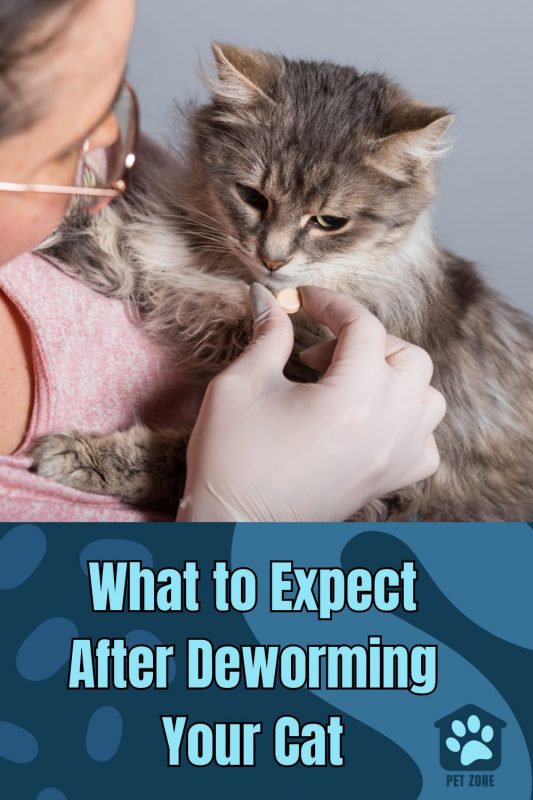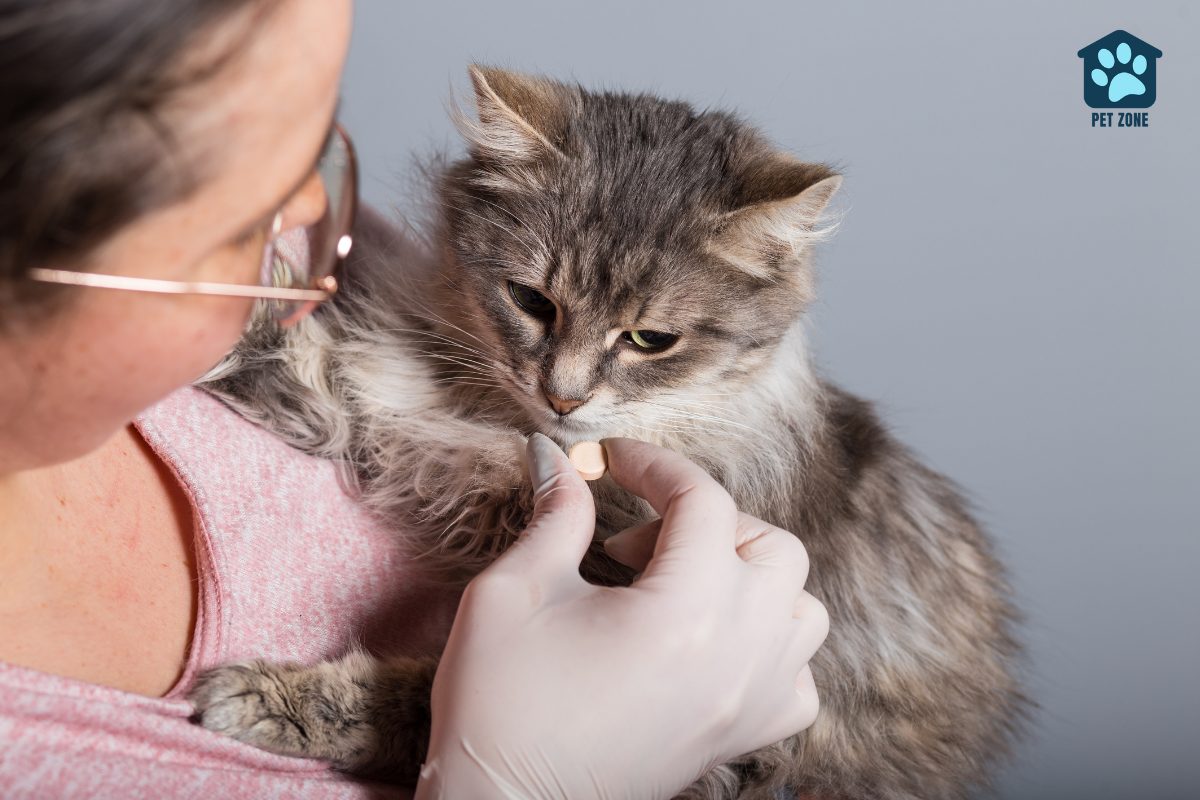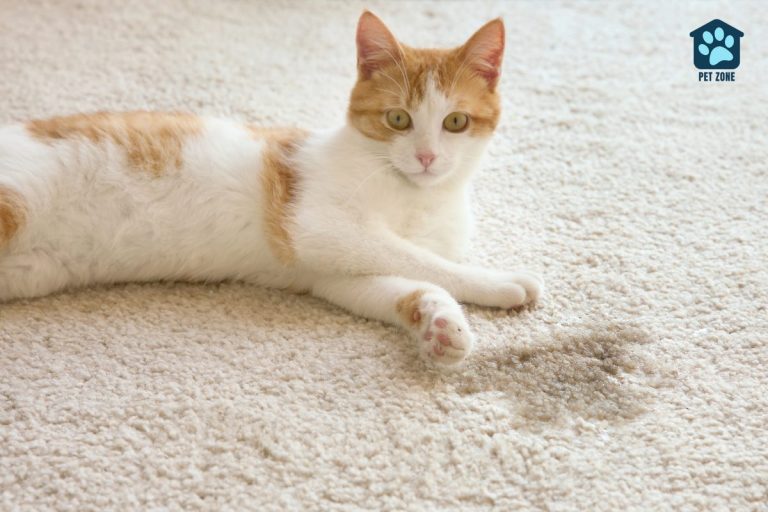Estimated reading time: 9 minutes
Discovering your furry friend has worms can be unsettling, but deworming is a sure step toward their health and happiness. Intestinal parasites like roundworms and tapeworms aren’t just common; they can seriously impact your cat’s well-being if left untreated.
This article will guide you through what changes to watch for after giving that all-important dewormer, ensuring you’re prepped for the next steps in keeping kitty worm-free.
Key Takeaways
- After deworming, your cat may feel unwell but will get better with time. Watch for side effects and talk to the vet if you’re worried.
- Keep giving your cat deworming medicine on a schedule to prevent new worm infections. Clean the litter box daily and control fleas too.
- Worms can harm your cat’s health, making them tired or sick. Dewormer gets rid of worms so your pet feels good again.
- Even indoor cats can get worms, so clean homes are important for stopping more worm problems.
- Regular vet check-ups help catch worms early. Follow the vet’s advice to keep your kitty safe from these pests.
Understanding Intestinal Parasites in Cats
Diving into the world of feline health, cat owners must recognize how intestinal parasites can compromise their furry companion’s well-being.
From subtle signs to more pronounced symptoms, understanding these invaders is the first step towards protecting your cat from potential harm.
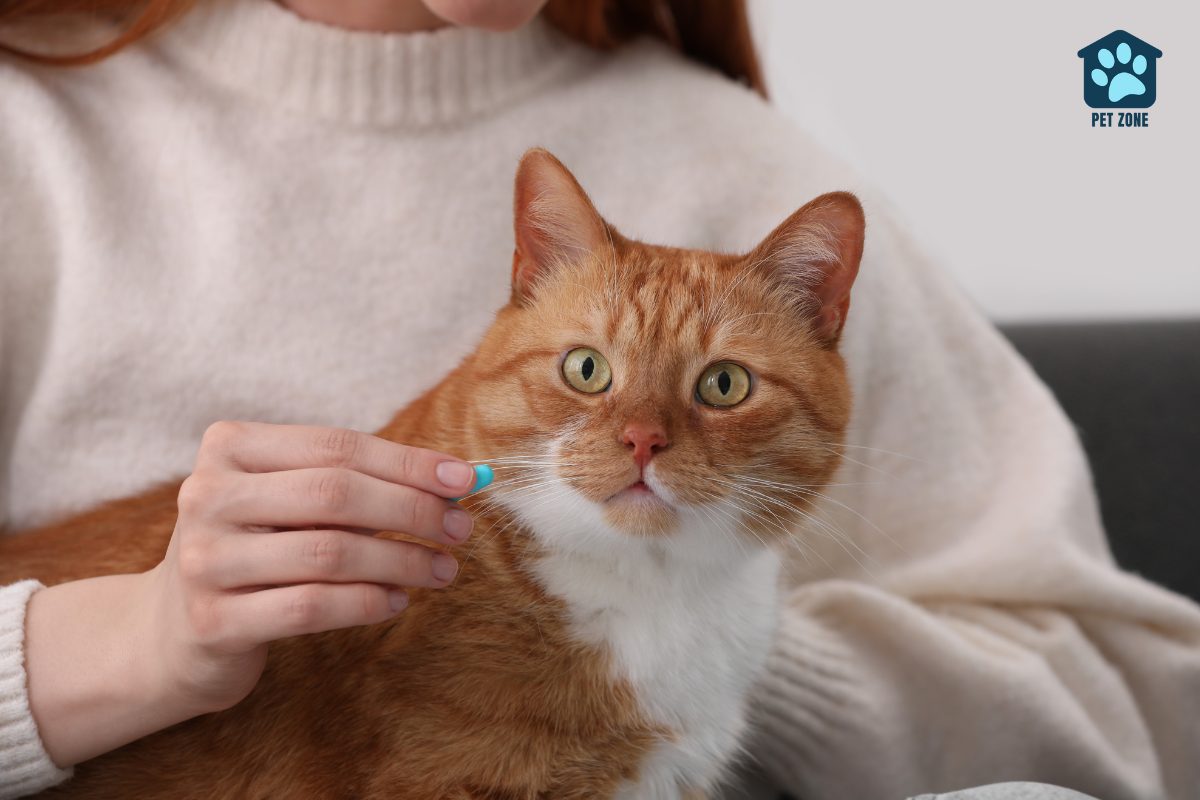
Signs and Symptoms
Cats with worms show clear signs. These symptoms can alert cat owners to a problem.
- Your cat’s bottom may be itchy, so they scoot or lick it often.
- The belly might look bigger, which is a clue they have worms.
- Weight loss happens even when your cat eats the same amount of food.
- Vomiting can be a sign that your feline friend has an upset stomach from worms.
- Diarrhea occurs as the cat’s body tries to get rid of the parasites.
- Some cats cough if roundworms move to their lungs.
- Worm segments or rice-like grains can sometimes be seen in the stool or around the tail.
- Dull fur and skin troubles may develop if worms steal nutrients from your kitty.
Impact on Cat’s Health
Worms can wreak havoc on a cat’s health. Your furry friend might feel tired, eat less, and have a bloated belly. Diarrhea and throwing up are also common signs of these nasty pests living inside them.
If you ignore the worms, they’ll grow in number. This makes it harder to get rid of them all. The more worms there are, the longer your cat will need medicine to clear them out completely.
It’s vital to tackle these parasites early to keep your kitty feeling their best.
Cat Deworming Process
Embarking on the deworming process for your feline friend can bring a wave of relief to both you and your pet. It’s the crucial first step in ridding your cat of bothersome intestinal parasites, with the journey toward health shaped by factors such as medication choice and your cat’s overall well-being.
Factors that Affect Deworming
Your cat’s deworming process is important. Here are key factors that influence it:
- Type of Parasite: Some worms need specific treatments. It’s vital to know which ones have infested your cat.
- Dewormer Choice: Different dewormers target different worms. The right choice ensures effective treatment.
- Cat’s Age: Kittens may need more frequent deworming than adult cats. Their young bodies handle medication differently.
- Health Status: If your cat is sick, it might take longer to get rid of worms. Healthy cats tend to recover faster.
- Worm Load: A heavy worm infestation will take more time to clear up. More worms mean longer treatment times.
- Indoor vs. Outdoor Lifestyle: Outdoor cats face a higher risk of worm infection and may require more frequent deworming.
- Cleanliness: Maintaining good hygiene can affect how well the treatment works and how quickly your cat recovers.
- Vet Recommendations: Follow what your vet says about the deworming schedule to keep your cat worm-free.
Type of Dewormer Used
Selecting the right dewormer is key to clearing worms from your cat. Each type of worm has a specific deworming treatment.
Your vet will help pick the best one based on the worms troubling your cat. Whether it’s tapeworms, roundworms, or hookworms, there’s a targeted medication for each.
The chosen dewormer affects how quickly your cat gets better. Some work fast and can fix the problem in just one dose. Others might need more time or multiple doses to get rid of the worms.
Watch for any side effects like vomiting or diarrhea after giving the medicine to your pet. If you spot anything worrying, call your vet right away for advice.
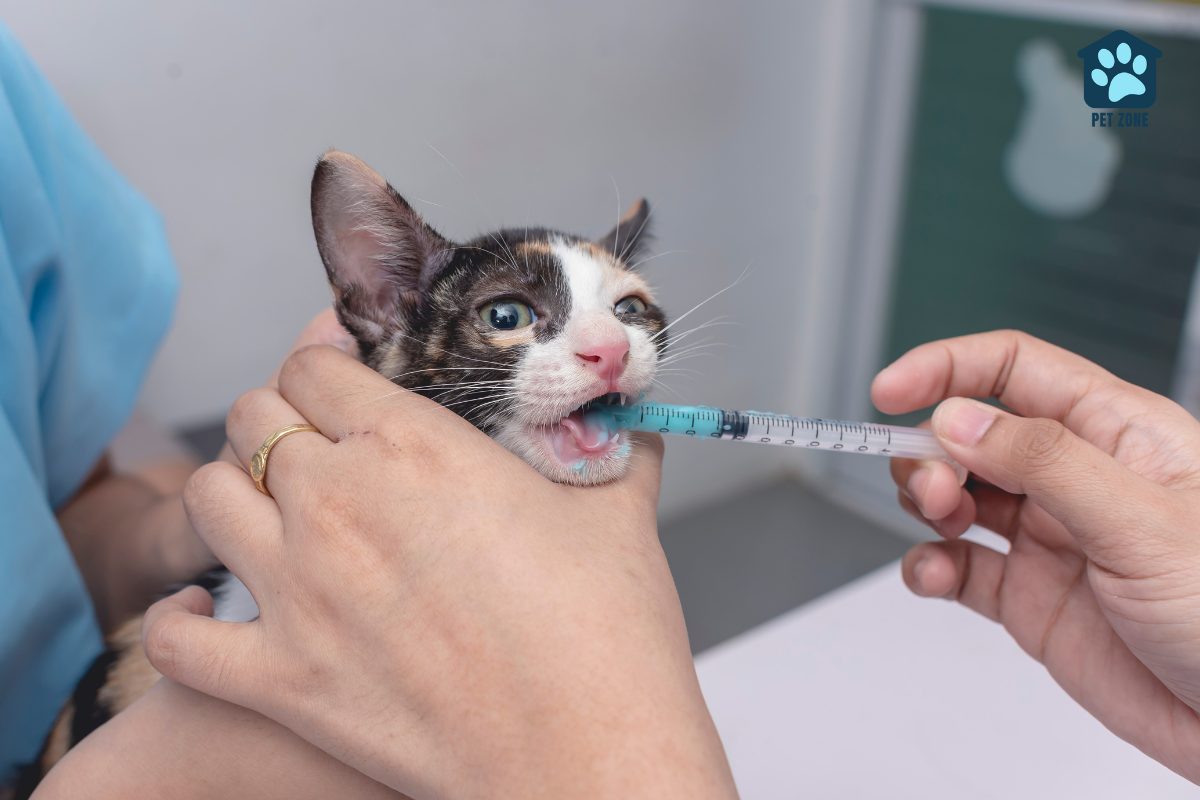
What to Expect After Deworming a Cat
After your kitty has been dewormed, it’s normal to have questions about what comes next. You can anticipate some immediate changes and should be prepared for the steps to keep them parasite-free—here’s a look at the journey post-deworming.
Possibility of Re-infection
Cats can get worms again even after they are dewormed. Fleas carry tapeworm eggs, and if your cat catches fleas, the cycle of worms can start over.
An indoor cat may seem safe, but even inside cats can eat infected bugs or lick their paws after stepping on dirty surfaces.
Keep your home clean to help stop your cat from getting worms again. Wash bedding often and keep litter boxes tidy. Regular vet visits will also protect them by catching signs of new infections early.
Always follow the deworming schedule the vet gives you for the best chance to keep those pesky parasites away!
When to Feed Your Cat After Deworming
Feeding your cat after deworming is essential. The right timing can help them feel better faster.
- Wait before offering food: Give your cat’s stomach some time to settle after taking the dewormer. Usually, 2 hours is enough.
- Observe your pet: Look for any signs of nausea or lack of appetite. These might be side effects of the medication.
- Offer a small meal: Start with a little bit of their regular food to see how they handle it.
- Watch for reactions: After they eat, keep an eye out for any vomiting or diarrhea.
- Stick to normal diets: Keep feeding your cat its usual diet unless the vet suggests otherwise.
- Maintain hydration: Ensure fresh water is always available as deworming can be dehydrating.
- Avoid treats and new foods: Don’t introduce anything new into their diet right after deworming.
- Monitor their eating habits: Make sure they return to normal feeding patterns in the next 24 hours.
How to Prevent Worms in Cats
Maintaining your feline friend’s health requires proactive prevention of worm infestations—essential for their well-being and your peace of mind.
Discover strategies to shield your cat from these unwelcome parasites, ensuring a happier, healthier pet in the long run.
Importance of Good Hygiene
Good hygiene keeps your cat healthy. Clean their litter box every day to stop worms from spreading. A dirty box can have worm eggs that infect your cat. Wash the box well to protect your pet.
Keep your home clean too, so worms can’t grow. This means less chance of worm problems in cats. Your furry friend stays safe and happy in a clean space!
Regular Deworming Schedule
Keeping your cat healthy means protecting them from worms. Regular deworming medication is a key step in this process.
- Start kittens young: Kittens should get dewormed every 2 weeks from ages 3 to 8 weeks.
- Stick to a schedule: From 6 weeks to 6 months, give kittens monthly deworming medication.
- Choose the right product: Your vet will prescribe the best dewormer for your cat’s specific needs.
- Keep it up: Even adult cats need regular treatments, typically every three months.
- Watch for signs: If your cat shows symptoms of worms, they may need extra doses of medicine.
- Clean environment, healthy pet: Clean litter boxes and indoor areas reduce worm risks.
- Prevent fleas: Flea control helps stop tapeworm infections in cats.
- Safe for most: Deworming medications rarely have side effects but are crucial for health.
- Trust the experts: Always get advice from a veterinarian before starting any treatment.
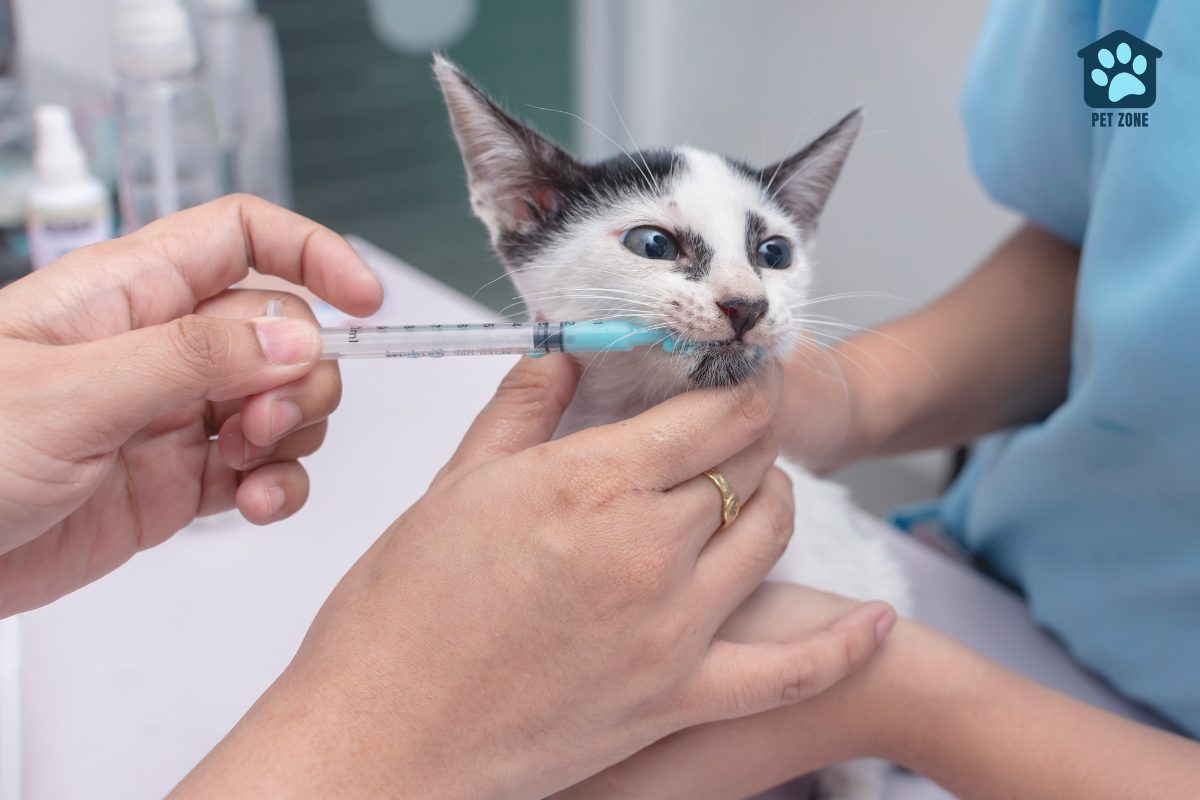
Conclusion
After deworming your cat, watch for fewer worms in their waste. Your kitty might feel a bit off but will soon bounce back. Keep up with regular vet visits and deworming schedules to help your furry friend stay worm-free.
Remember that clean living spaces and flea control are also key to preventing parasites. Stay on top of these things, and you’ll give your cat the best chance at a healthy life!
Frequently Asked Questions
It usually takes a few days for deworming medicine to start working. Your cat may pass worms or larvae in their feces during this time. It’s important to check with the veterinary about your specific medication and cat.
Yes, even indoor cats can get intestinal parasites from things like fleas or contaminated soil brought inside. That’s why proper deworming is vital for all cats, whether they go outside or not.
After giving your cat deworming medicine, they could have mild side effects like vomiting or diarrhea. This happens as the body gets rid of the intestinal worms but call your vet if you’re worried.
Veterinarians normally recommend that kittens should be dewormed starting at two weeks old because they can have so many tiny worms passed down from their mother.
You might still notice dead adult worms in your cat’s waste even after treatment because the medication works by killing them off so the body can eliminate them naturally.
Regularly giving your cat prescribed worm medicine is crucial – typically every 3 months – but ask your vet what’s best for keeping those pesky parasites away from your kitty.
As an Amazon Associate I earn from qualifying purchases.
